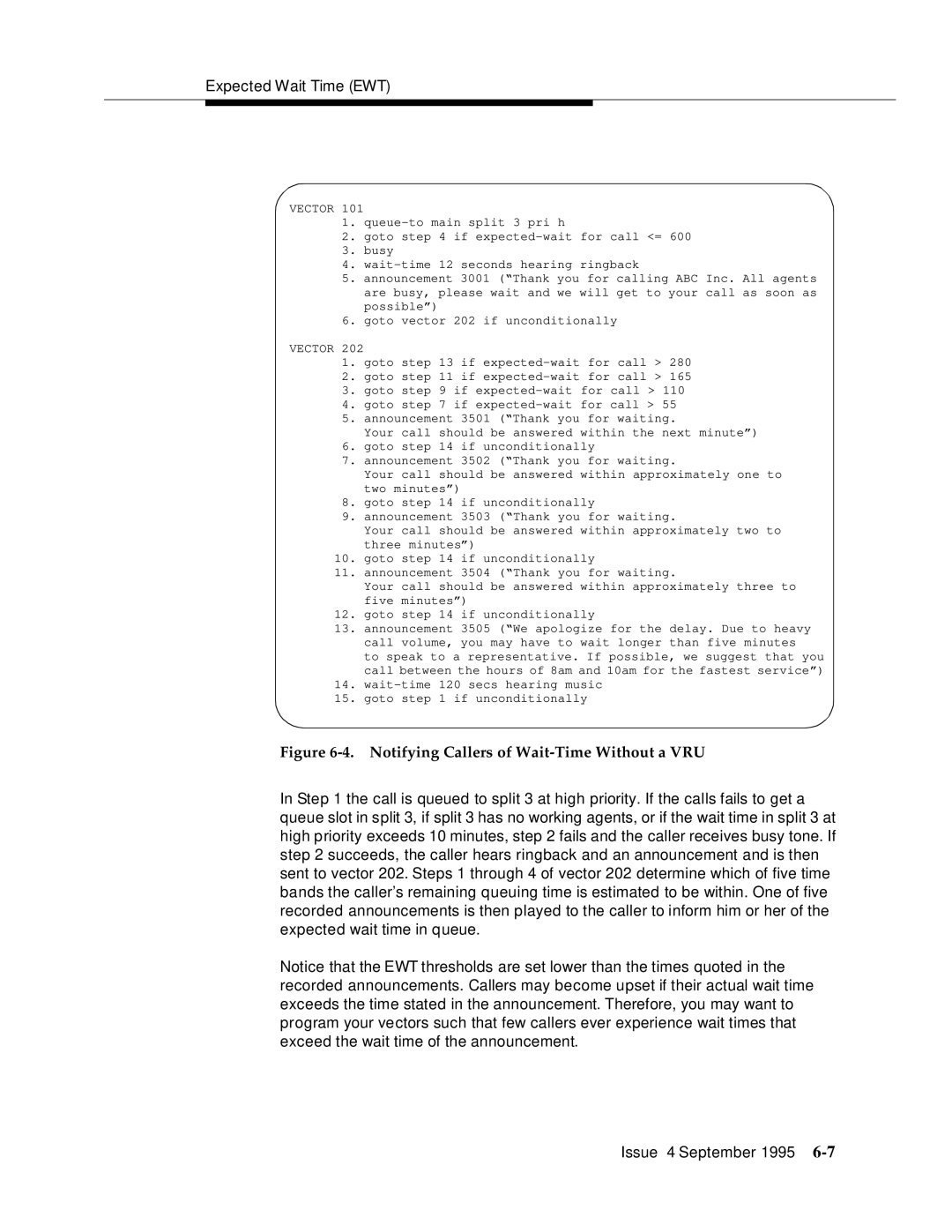
Expected Wait Time (EWT)
VECTOR 101
1.
2.goto step 4 if
3.busy
4.
5.announcement 3001 (“Thank you for calling ABC Inc. All agents are busy, please wait and we will get to your call as soon as possible”)
6.goto vector 202 if unconditionally
VECTOR 202
1.goto step 13 if
2.goto step 11 if
3.goto step 9 if
4.goto step 7 if
5.announcement 3501 (“Thank you for waiting.
Your call should be answered within the next minute”)
6.goto step 14 if unconditionally
7.announcement 3502 (“Thank you for waiting.
Your call should be answered within approximately one to two minutes”)
8.goto step 14 if unconditionally
9.announcement 3503 (“Thank you for waiting.
Your call should be answered within approximately two to three minutes”)
10.goto step 14 if unconditionally
11.announcement 3504 (“Thank you for waiting.
Your call should be answered within approximately three to five minutes”)
12.goto step 14 if unconditionally
13.announcement 3505 (“We apologize for the delay. Due to heavy call volume, you may have to wait longer than five minutes
to speak to a representative. If possible, we suggest that you call between the hours of 8am and 10am for the fastest service”)
14.
15.goto step 1 if unconditionally
Figure 6-4. Notifying Callers of Wait-Time Without a VRU
In Step 1 the call is queued to split 3 at high priority. If the calls fails to get a queue slot in split 3, if split 3 has no working agents, or if the wait time in split 3 at high priority exceeds 10 minutes, step 2 fails and the caller receives busy tone. If step 2 succeeds, the caller hears ringback and an announcement and is then sent to vector 202. Steps 1 through 4 of vector 202 determine which of five time bands the caller’s remaining queuing time is estimated to be within. One of five recorded announcements is then played to the caller to inform him or her of the expected wait time in queue.
Notice that the EWT thresholds are set lower than the times quoted in the recorded announcements. Callers may become upset if their actual wait time exceeds the time stated in the announcement. Therefore, you may want to program your vectors such that few callers ever experience wait times that exceed the wait time of the announcement.
Issue 4 September 1995
